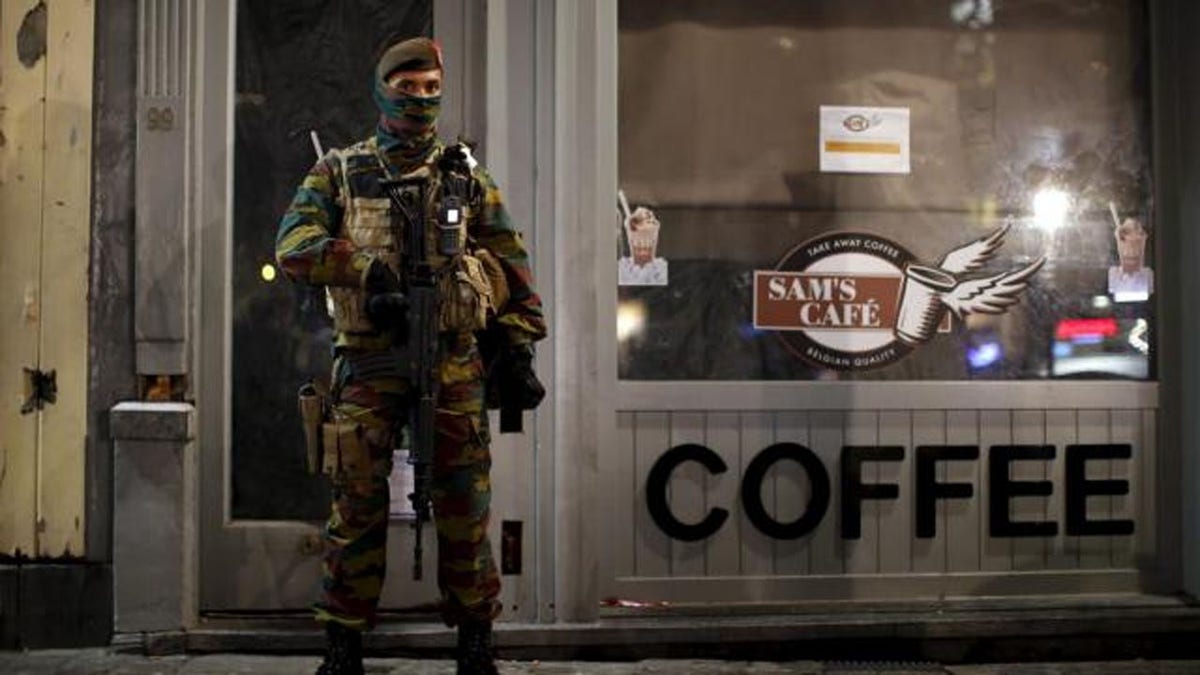
Belgian soldiers patrol in central Brussels as the city is on lockdown.
Already many are predicting that tourism in Brussels will take a hit in the wake of Tuesday’s terror attacks.
Nadejda Popova, travel project manager at Euromonitor International, projects a 10-20 percent decline in bookings to the European capital in the short- to medium-term.
But if you look at the numbers, tourism typically recovers pretty quickly in countries or cities affected.
According to a study from the World Travel and Tourism Council, it takes about 13 months for tourism to recover from a terrorist attack. The London-based industry trade group also found that by comparison, tourism takes longer to bounce back from disease (21 months), an environmental disaster (24 months), and political unrest (27 months).
This is because events like a natural disaster often requires the rebuilding of infrastructure—a time-consuming endeavor. For example, according to the group's figures, it took Thailand 14 months to recover from the 2004 tsunami, Haiti 22 months from its earthquake and Japan 21 months from its earthquake.
Of the four crises categories studied, terrorist incidents had the lowest impact in terms of both total lost arrivals and recovery time.
Yeganeh Morakabati, associate professor at Bournemouth University in the U.K. who studies the relationship between tourism and terrorism, says the industry can pivot due to the high demand for travel and increasing advances in technology, such as cheaper flights and greater awareness through the Internet.
“The tourism industry is a very resilient industry and people have fairly short memories. And so as long as the attacks are one-off, the impact tends to be small. This is what we have seen in the past,” she says.
Morakabati pulled together arrival data to sites of recent and significant terrorist attacks and found that not only do tourism figures rebound quickly, visitors keep coming.
There are exceptions, says Morakabati, such as the Sept. 11 attacks in 2001.
A Department of Homeland Security working paper states that after 9/11, the fall in international visitors to the U.S. was “immediate and precipitous.” It was not until 2007 that foreign tourist arrivals returned to near their pre-9/11 levels. But the paper notes there were other factors, such as a hurting economy, that kept the numbers down.
Morakabati notes that as the frequency of the attacks increase, so could the potential for people to stay away.
"This could potentially have some compound effect – people will lose the feeling of safety that is a fundamental part of the European travel scene and the European’s way of life. The Travel Zoo survey earlier this year suggested that some people within the Asian generating markets are thinking twice about traveling to Europe," she says.
But in general, travel has become an annual ritual for most people with disposable income and/or a credit card-- and something few want to give up.
